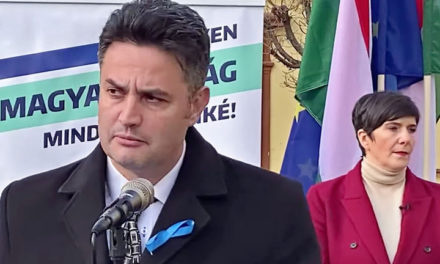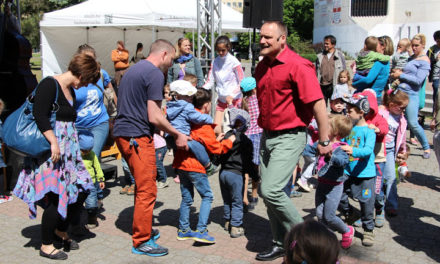According to the military historian, Western analysts do not take into account that resilience and recovery from disasters is the historical trademark of the Russian army, and that they can sacrifice any number of people.
"History is legion of masters and commanders who swore to defeat the incompetent, disorganized and corrupt Russian army. But there is a pattern to their encounters with the Russian military that is also relevant to the current offensive in Ukraine,” begins Victor Davis Hanson.
He mentions that Napoleon won more battles than he lost in Russia, capturing and burning Moscow - and destroying his own French army in the process.
Charles Joseph Minard's famous invasion chart graphically showed how his great army shrank each day he advanced into Russia.
The Wehrmacht's 3.5 million-strong expeditionary force consistently crushed the Russian army for nearly two months following the June 22, 1941 invasion—killing nearly 3 million Russians.
Such catastrophic losses could have broken any Western army. But by December 1941, the Germans could no longer win the war in the East.
“Of course, the pre-emptive Russian attack on Kiev turned out to be a complete disaster. Who could forget the scenes last winter, when long columns of stuck Russian vehicles were shot down by brave Ukrainian ad hoc units? But remember, saving Kiev was only the beginning of the war, not the end.
Resilience and recovery from disasters is the historical trademark of the Russian army"
- notes the military historian.
The author notes that in the current war in Ukraine, over the past 16 months, Russia has suffered unimaginably great losses. It lost more planes, helicopters, armored vehicles—and soldiers—than at any time since World War II. The morale of the Russian army is said to be in ruins.
"Westerners understandably gleefully watched the bizarre 'coup' staged by Yevgeny Prigozhin and his mercenary 'Wagner group', expecting some kind of civil war or the forced resignation of Vladimir Putin.
The mantra of "Putin is over" has been going on since February 2022
In short, the Russian "special military operation" is a sad Russian story of self-inflicted wounds, pathetic incompetence and callous self-treatment. So why does Russia continue this waste?
It is true that Russia can farm from more than three times the population of Ukraine, from an area 30 times larger. By contrast, perhaps a quarter of Ukraine's pre-war population left the country, bringing the population to less than 30 million.
Westerners scoff at Russia's anemic and bleeding economy—which, even before the war, was only half the size of California's. Yet Russia's GDP is ten times larger than Ukraine's.
Perhaps the key to the Russian mystery is the reductionist 'Russia doesn't care' attitude about its massive losses, which by now would have brought down any Western government that oversaw such senseless carnage."
writes Victor Davis Hanson.
“The desperate Russians have maddenedly almost completed a modern version of the Maginot Line, a zigzag network of interlocking trenches, reinforced concrete tank traps, minefields, artillery crossfires – all protected by mobile reserves, aircraft, missiles and drones. They were waiting for Ukraine's vaunted "Spring Offensive," perhaps hoping that for every two Russians lost, they would get one Ukrainian dead. (…) But increasingly rare are the triumphant boasts of Western generals, pundits, media and political officials in March and April that the long-promised showdown would trigger a Ukrainian armored Patton-style rampage through and around the Russians – and perhaps a trap at Cannae , which absorbs such lime deposits and ends the war.
After all, the USA and NATO are investing 200 billion dollars in Ukraine's increasingly modern military machinery. Top Western advisers and intelligence officials advise Ukrainian generals daily.
Kiev now spends more annually on defense than any other country except the United States and China. Its soldiers are perhaps more battle-hardened than any NATO member state, and its military better equipped than any Western military except the American one,” writes Hanson.
"Historically, the Russian military has not been proactive, but reactive and sluggish. Historically, it has been plagued by czarist, soviet and oligarchic bureaucratic incompetence. He treats his soldiers like cannon fodder and relies on sticks rather than carrots to mobilize the youth.
Yet the hardy Russian military is resilient because it bends but rarely breaks—even if its tactics of raining men and fire on the enemy are prescriptive and predictable. We laugh at the unimaginative Russian ramparts, but we also accept that their breakthrough will cost blood and treasure, which Ukraine and its Western benefactors may not want to pay, although Russia itself would be happy to foot that bill and more."
According to the military historian, taking into account Russia's military history, it is shocking how confidently Western military analysts predicted that the smaller Ukraine would not only expel the neighboring Russians from what they occupied in 2022, but would go on to retake the border region and Crimea .
“Their predictions assumed that catastrophic Russian losses, the dividends of Moscow's stupidity and indifference, the immorality of the invasion, Putin's wickedness, and the nobility of the new united NATO would all ensure Russian defeat.
However, history saw it differently. He would reply that in order to win a war, the proverbially long-suffering Russia must first almost lose it.
Unfortunately, this Verdun-like war is far from over.”
Hanson concludes.
Featured image: Foxnews / Screenshot













